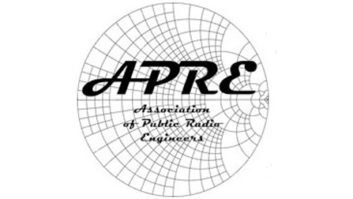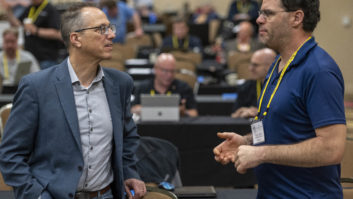FCC officials have spent time trying to reassure broadcasters that attention to RF interference complaints will not decline if the agency implements its plan to restructure its Enforcement Bureau field offices. Now, commission officials are reaching out to public safety officials with that message as well.
Bill Davenport, deputy bureau chief of the Enforcement Bureau, told attendees of the National Public Safety Telecommunications Council meeting in Washington that the bureau learned from industry and its own employees “the number one priority of the field offices should be the resolution of RF interference issues,” whether that’s for public safety entities, commercial wireless entities or broadcasters. After looking at the data from a consultant’s report, Davenport said at the Wednesday meeting, officials found field agents are spending some 40% of their time on RF resolution, and of that, some 10% is related to public safety, like police, fire and emergency medical services communications.
The balance of the field agent’s time is spent on things like routine tower inspections, paperwork or other things, he said, relaying an example of a one-person office in which the agent has to wait for the plumber. Multiple offices receive less than one RF interference complaint per employee per week, according to Davenport, who suggested the commission plan takes into account more efficient ways to handle complaints without paying the high overhead of the field offices.
Like broadcasters, many public safety communications representatives have reservations about the plan to close more than half of the Enforcement Bureau field offices and reduce the number of agents from more than 60 to just over 30. In an April 8 letter to the FCC, NPSTC Chairman Ralph Haller, a former FCC field agent, urged the commission to “consider very carefully” whether the closure plan is the right approach. “As public safety, commercial and broadcast community constituents, we believe such closures would be an ill-advised rush to judgment which would negatively impact the public we all strive to serve.”
“Under our plan, agents will spend more time in the field and focus more on RF spectrum violations instead of routine inspections and other non-RF matters,” said Davenport.
He discussed a situation in which a state emergency management agency was experiencing digital interference to an 800 MHz repeater at its state emergency operations center. “They called to complaint to the FCC and the field agent did a great job of finding and resolving the problem,” however it took the agent two weeks to come out because the individual “had so many problems other than RF issues” to work on, said Davenport.
One retired California public safety official in attendance agreed with the two-week issue, and said the reason the number of public safety RF interference calls is low is “because we quit calling the FCC” for those issues and tried working with companies directly. “Let us know when we can tell people to call the FCC again,” he said.
A second public safety official agreed, mentioning an instance in which there was interference on the 800 MHz band. Public emergency groups “will try to work it out with the carrier,” but resolving intermittent interference is difficult. Turning off the power can resolve the problem, he said, “But now the power’s back up after two weeks and the interference returns, “which is kind of crippling when the site is 150 feet from the police station, interfering with communications.”
Davenport said several entities don’t know how to contact the Enforcement Bureau to report an RF interference issue, and some have resorted to using the FCC website to report “a pretty big problem.” He acknowledged the agency “has a communication issue” and said the bureau will make phone numbers available to report problems. That’s something NAB has also asked for, according to Davenport.
He said the Enforcement Bureau is working on improving how a complaint can be processed and tracked. “We want to set up automated systems” beyond naming a manufacturer, but also including a model number for interfering equipment, “with the information automatically relayed” to the Office of Engineering and Technology Lab.
Some of the money saved under the restructuring plan will go towards improved employee training and better equipment, Davenport said, reiterating what Chairman Tom Wheeler and Enforcement Bureau Chief Travis LeBlanc told broadcasters at the recent NAB Show.
The plan is being circulated among FCC commissioners for a vote. Congress has recently asked for all the information the agency used to devise the closure plan. The majority of that material is due to Rep. Greg Walden’s House Subcommittee on Communications and Technology today with the balance due next Tuesday.
Should the commissioners adopt the plan, the agency would then need to negotiate with the employee’s union “on things like buyouts,” Davenport said. “We’re hopeful we can get this done sometime in the fall.”











